M.llo Roberto Steppi, Pola 1919 – 2000
Medaglia d’argento e croce di ferro
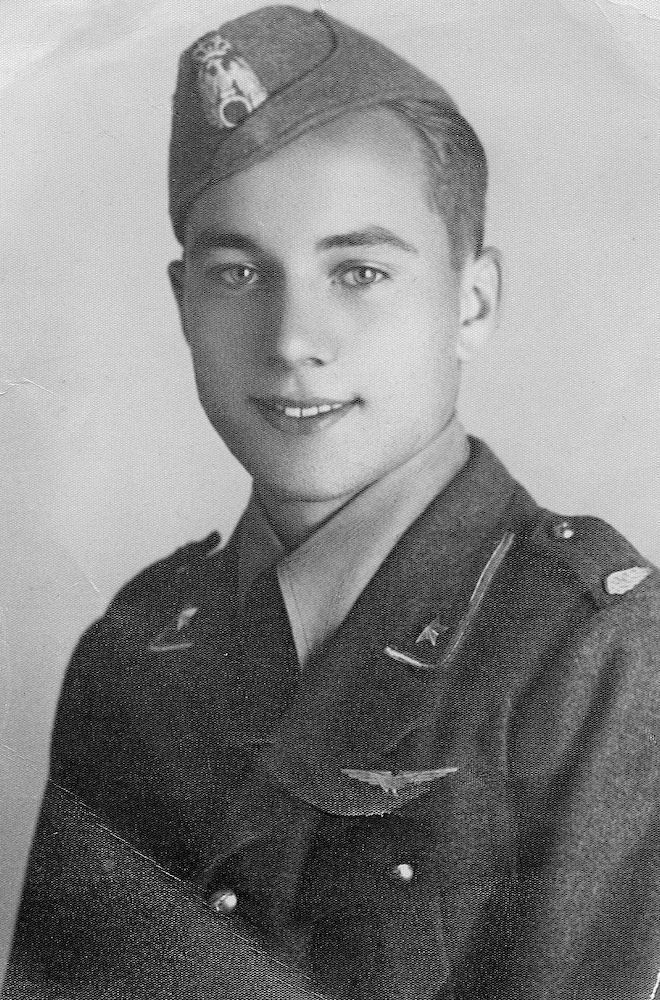
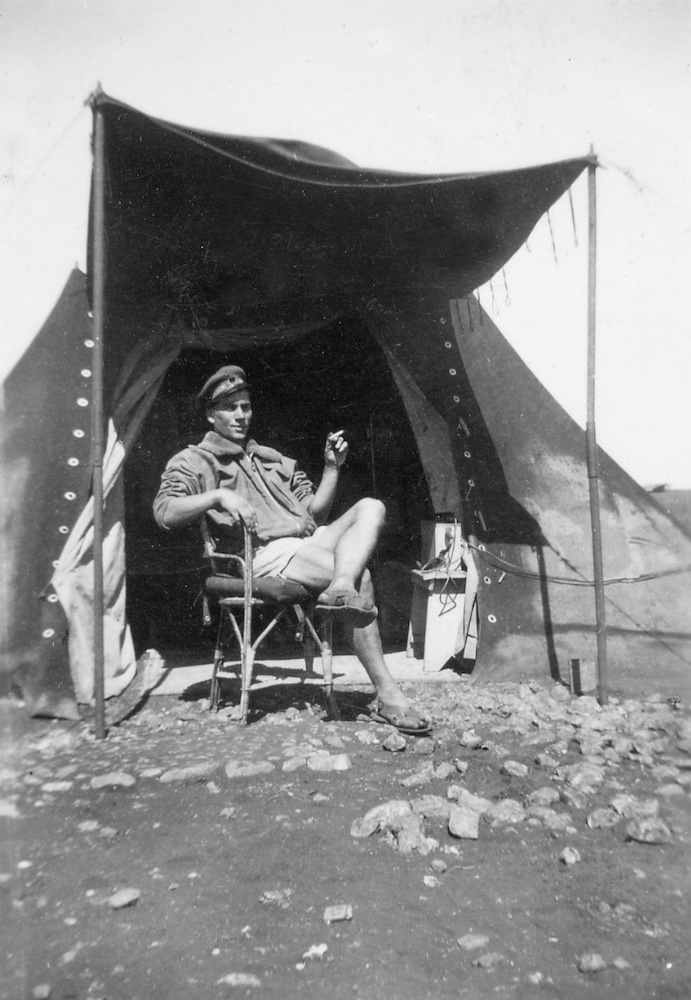
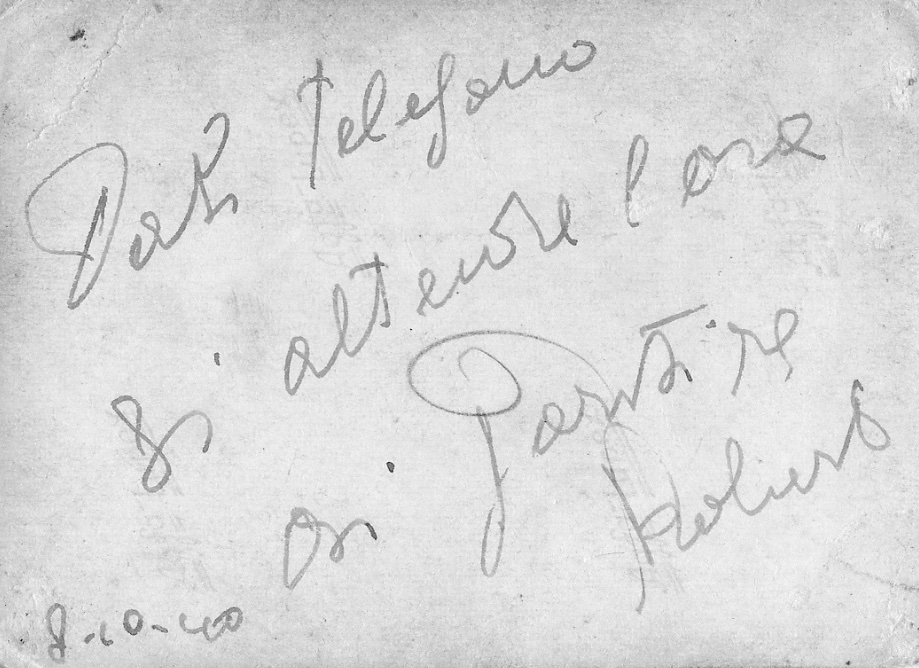
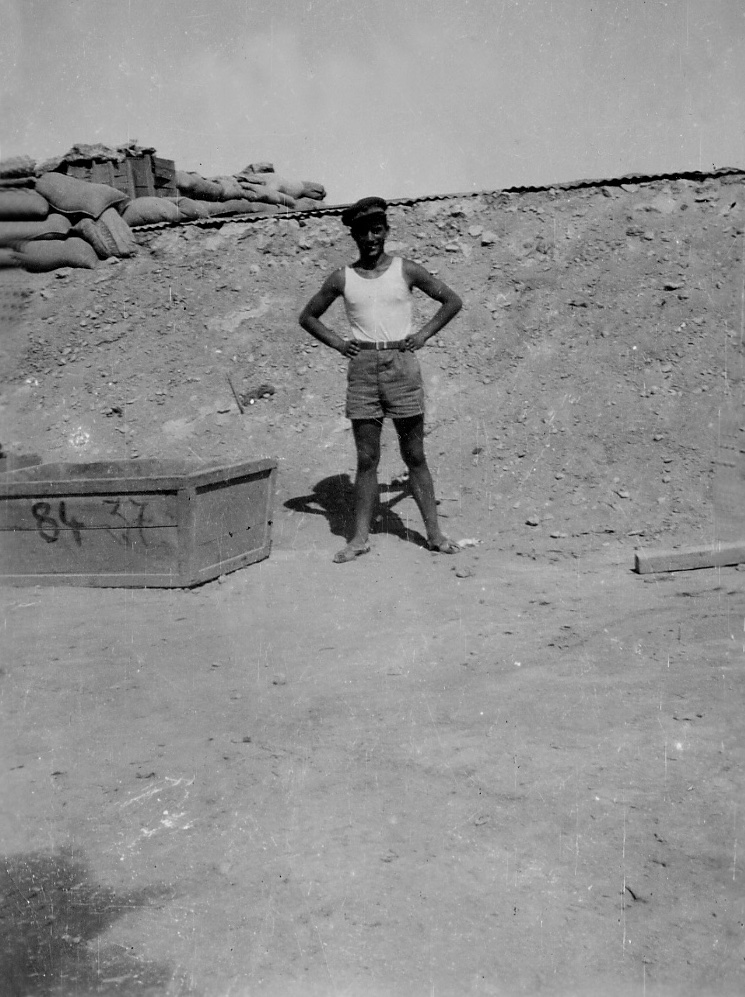
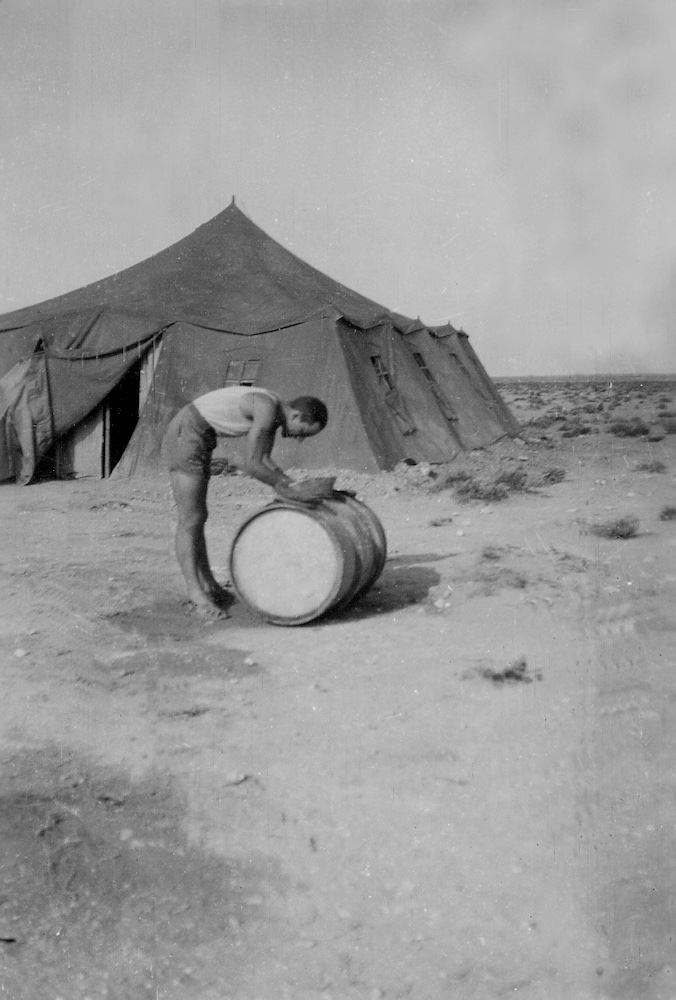
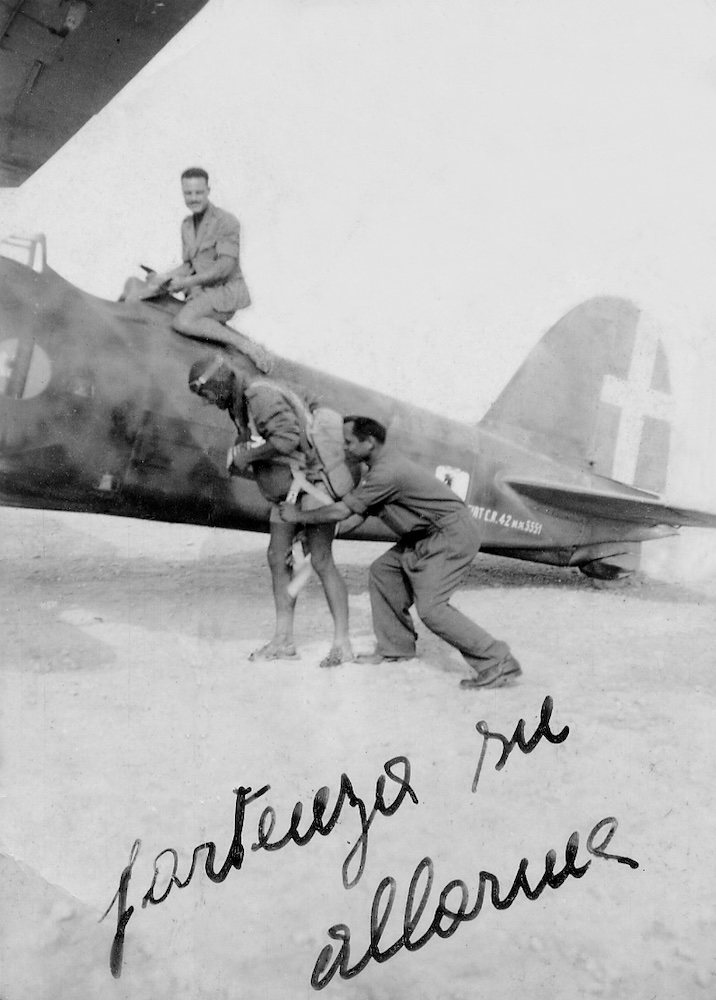
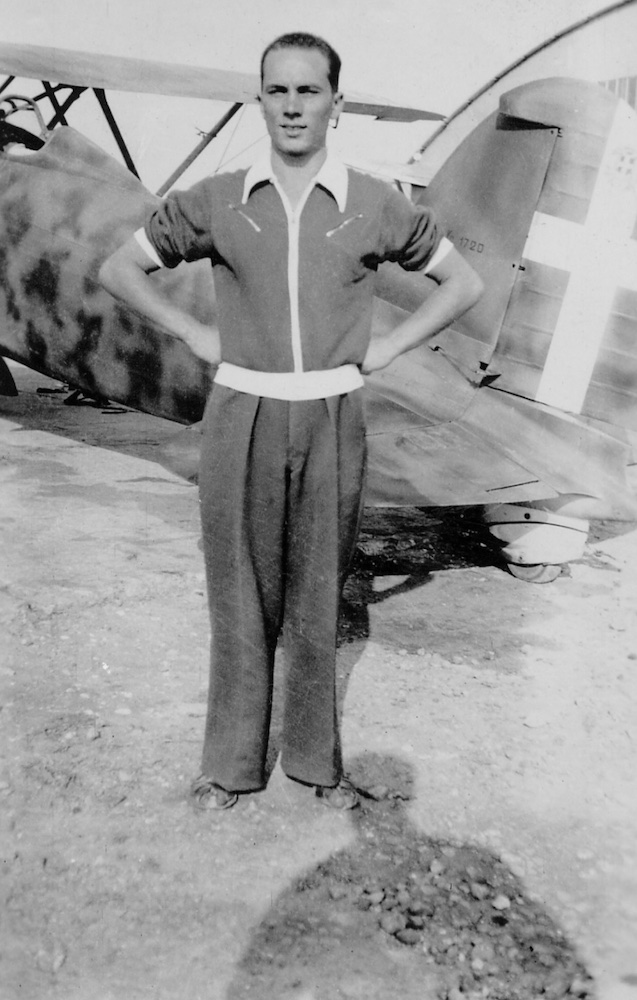
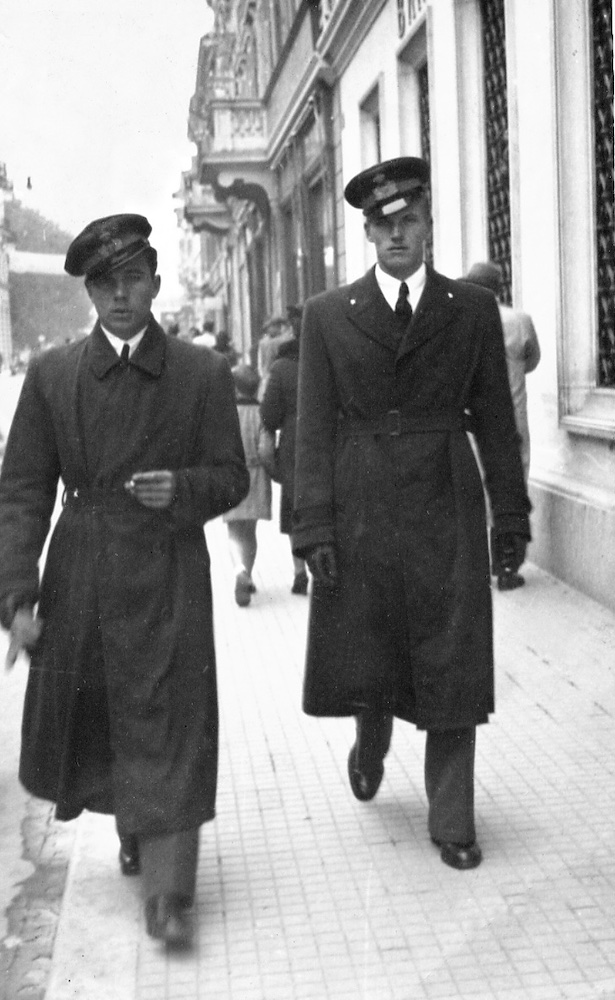
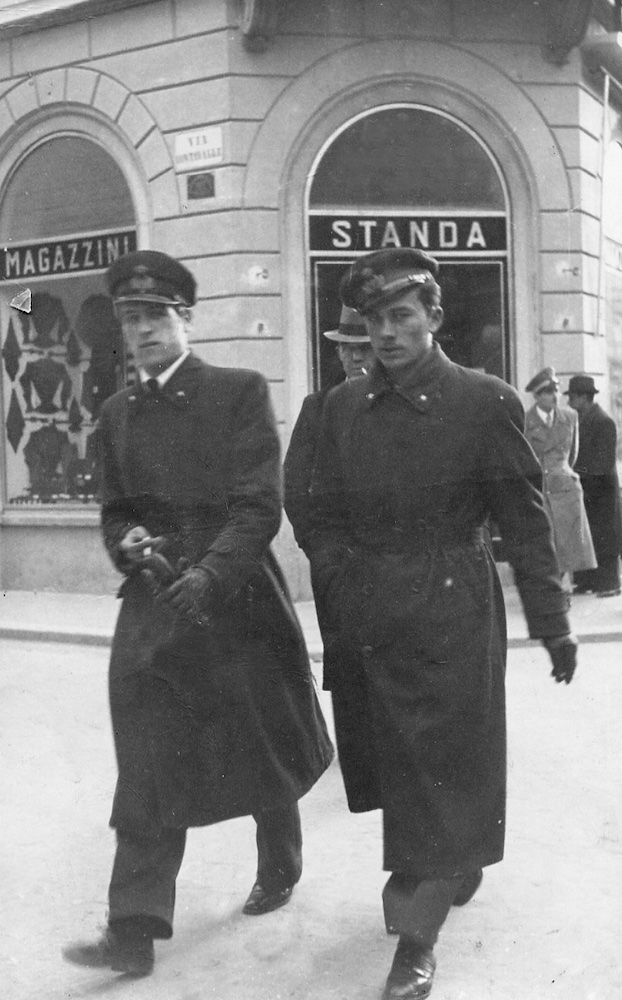
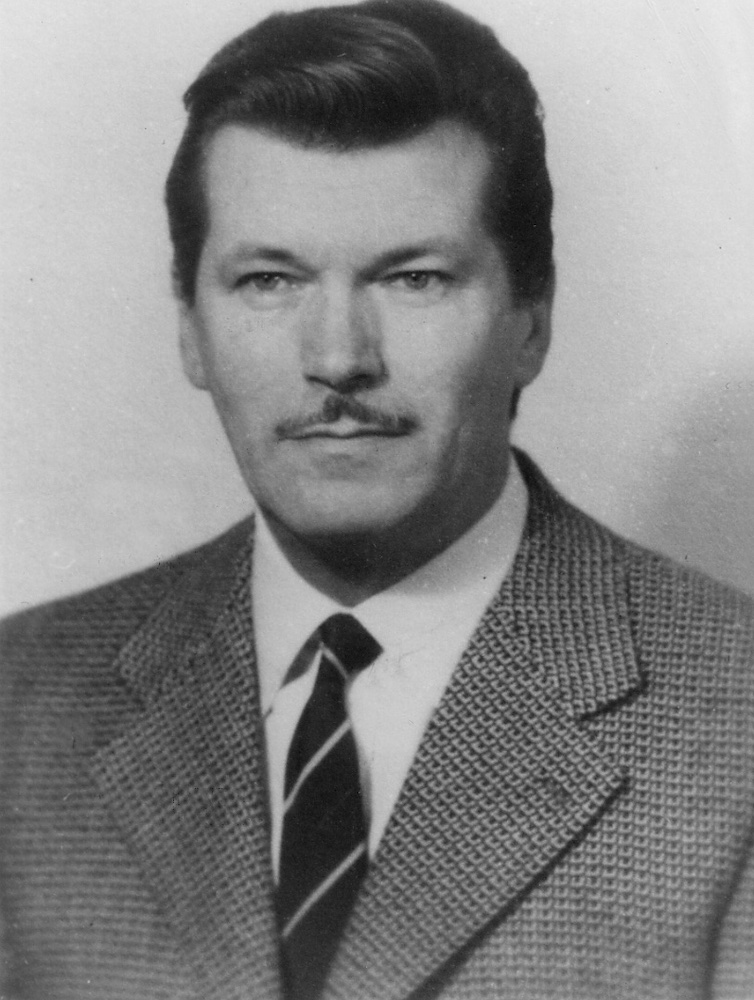
| per gentile concessione di Biplane fighter aceshttp://surfcity.kund.dalnet.se/italy_steppi.htm On 12 June, the 2o Stormo’s fighters were joined by those of the 10o Gruppo (84a, 90a and 91a Squadriglie) of the Gorizia based 4o Stormo C.T.. The Gruppo was commanded by Tenente Colonnello Armando Piragino and started the war at Tobruk T2 with 27 CR.42s. At the beginning of the hostilities the 84a Squadriglia C.T. was composed of the following pilots: Capitano Luigi Monti (CO), Capitano Aldo Lanfranco, Tenente Vincenzo Vanni, Maresciallo Emiro Nicola, Maresciallo Mario Bandini, Sergente Maggiore Ugo Corsi, Sergente Domenico Santonocito, Sergente Steppi, Sergente Giuseppe Scaglioni, Sergente Corrado Patrizi and Sergente Narciso Pillepich. The eleven pilots had only eight Fiat CR.42s. It seems that Sergente Maggiore Corsi and Sergente Pillepich didn’t take part in the move of the unit from Gorizia on 7 June but were however in T2 with the unit from at least 13 June and 15 June. At dawn on 21 June, a Short Sunderland appeared over Tobruk harbour. Sergente Steppi of the 84a Squadriglia took off immediately and intercepted the seaplane 20 kilometres north of Tobruk were it already was under attack of two CR.32s flown by Tenente Ranieri Piccolomini and Tenente Giorgio Savoja of the 92a Squadriglia, which had scrambled from Tobruk T2 at 04:30. Diving on the Sunderland, Steppi opened fire aiming at the cockpit but after two bursts of fire, his guns jammed and he was obliged to leave the pursuit. Tenente Franco Lucchini of the 90a Squadriglia took off after Steppi and joined the fight, following the Sunderland far out over open sea and leaving it off coast with two engines smoking. Neither Lucchini nor Steppi claimed any victory but, two days later, on 23 June, news arrived from the Navy base at Bardia, that the Sunderland, heavily damaged, had been forced to ditch in the sea off the coast and had been captured with all the crew dead except from the pilot, who was wounded. The victory was assigned to the four pilots collectively although it should be attributed to Lucchini. L2160 was undoubtedly the plane attacked by Piccolomini, Savoja, Steppi and Lucchini while there is the strong possibility that the aircraft ditched off Bardia was in fact the 216 Squadron’s Bombay (perhaps previously hit by AA fire and in fact the AA defences of Tobruk was credited with a victory during the day) that was incorrectly reported as a Sunderland and originated the Italian fighter’s claim. Two more CR.42s suffered accidents during the transport (Sergente Steppi of the 84aSquadriglia and Sergente Maggiore Lorenzo Migliorato of the 91a Squadriglia. The Italian formation was escorting three CR.32s and was led by Maggiore Carlo Romagnoli. It was composed of seven CR.42s from the 84a Squadriglia (Capitano Luigi Monti, Capitano Vincenzo Vanni, Tenente Giuseppe Aurili, Sottotenente Paolo Berti, Sergente Steppi, Sergente Narciso Pillepich and Sergente Domenico Santonocito), five CR.42s from the 91a Squadriglia (Capitano Giuseppe D’Agostinis, Sottotenente Ruggero Caporali, Sergente Maggiore Leonardo Ferrulli, Sergente Elio Miotto and Sergente Alessandro Bladelli) and six CR.42s from the 90a Squadriglia (Tenente Giovanni Guiducci, Tenente Franco Lucchini, Sottotenente Neri De Benedetti, Maresciallo Omero Alesi, Sergente Maggiore Angelo Savini and Sergente Bruno Bortoletti). Capitano Vanni, Tenente Aurili and Sergente Steppi attacked first, followed by other pilots of the formation. During the combat Vanni’s aircraft was hit by return fire and with the compressed air piping pierced, he was forced to turn back. His wingmen continued the pursuit and claimed the Blenheim shot down. At 08:00 on 11 December, a mixed formation of CR.42s from the 84a and 94a Squadriglie took off from Menastir for a covering patrol over Italian troops retreating from Bug Bug. Participating pilots from the 8o Gruppo were Tenente Vittorio Gnudi and Sottotenente Giacomo Maggi in the last African mission of their unit, while from the 10oGruppo there were Capitano Luigi Monti, Sottotenente Paolo Berti, Sergente Onorino Crestani and Sergente Steppi. Over the front, they were attacked by Hurricanes, which shot down Gnudi, killing the pilot. Maggi fought back expending 70 rounds while Steppi claimed damage to them when they were fleeing. At 11:10 on 12 December, a mixed formation from the 4o Stormo took off for a free sweep in the Ogerin Bir El Kreighat area. After the sweep, they were to ground strafe targets of opportunity. Participating pilots from the 91a Squadriglia were Maggiore Carlo Romagnoli (CO 10o Gruppo), Capitano Vincenzo Vanni, Sottotenente Andrea Dalla Pasqua, Sergente Maggiore Leonardo Ferrulli, Sergente Maggiore Natale Fiorito and Sergente Maggiore Giovanni Casero. From 84a Squadriglia came Capitano Luigi Monti, Sottotenente Paolo Berti, Sottotenente Luigi Prati, Sottotenente Bruno Devoto, Sergente Steppi and Sergente Onorino Crestani. Monti, Prati and Steppi were credited with a damaged each while Ceoletta also claimed two damaged Gladiators (according to some Italian historians one Gladiator was shared between Monti, Prati and Steppi and the second shared between Gon and Minelli, while one or two other Gladiators were considered probably shot down but there is however no trace of such claims in the official diaries). On 22 December, a formation of 23 fighters from the 10o Gruppo took off at 10:15 from Z1 to escort SM 79s bound to attack the usual British forces in the Sidi Omar-Sidi Azeiz area. The formation included six CR.42s from the 91a Squadriglia (Maggiore Carlo Romagnoli, Capitano Vincenzo Vanni, Sottotenente Andrea Dalla Pasqua, Sergente Maggiore Lorenzo Migliorato, Sergente Maggiore Natale Fiorito and Sergente Elio Miotto), seven from the 90a Squadriglia (Tenente Franco Lucchini, Sottotenente Alessandro Rusconi, Sottotenente Neri De Benedetti, Sergente Alfredo Sclavo, Sergente Bruno Bortoletti, Sergente Luigi Bagato and Sergente Luigi Contarini) and ten from the 84aSquadriglia (Capitano Luigi Monti, Capitano Mario Pluda (from the 91a Squadriglia but attached to the 84a Squadriglia), Tenente Antonio Angeloni, Sottotenente Luigi Prati, Sergente Domenico Santonocito, Sergente Steppi, Sergente Corrado Patrizi, Sergente Giuseppe Scaglioni, Sergente Piero Buttazzi and Sergente Luciano Perdoni). During the return journey, a British aircraft, identified as a “Battle”, tried to attack the formation but was attacked and damaged by Sergente Perdoni, Sergente Steppi and Tenente Angeloni. The 91a Squadriglia formation attacked enemy aircraft (of unspecified type) over the front and claimed one of them confirmed. AA fire damaged Sergente Steppi’s CR.42. At 12:10, all the fighters landed back at Z1. On 23 December, 17 CR.42s from the 10o Gruppo took off at 08:30 to escort ten bombers from the 15o Stormo, which had taken off from T4 and bound to attack armoured vehicles around Sidi Azeiz. The escort included five fighters from the 91a Squadriglia (Maggiore Carlo Romagnoli, Capitano Vincenzo Vanni, Maresciallo Giorgio Di Giulio, Sergente Maggiore Giovanni Casero and Sergente Luigi Ferrario), four from the 90a Squadriglia (Tenente Giovanni Guiducci, Tenente Franco Lucchini, Sergente Alfredo Sclavo and Sergente Luigi Contarini) and eight from the 84a Squadriglia (Capitano Luigi Monti, Tenente Antonio Angeloni, Sottotenente Luigi Prati, Sottotenente Bruno Devoto, Sergente Domenico Santonocito, Sergente Steppi, Sergente Corrado Patrizi and Sergente Piero Buttazzi). Maresciallo Luigi Bignami and Sergente Steppi, who have fallen behind because Sottotenente Bruno Devoto, their patrol leader, had to return due to problems with his aircraft, tried to catch up with Monti. Thus they arrived over Malta alone were they were surprised by five fighters. The rapid reaction of Steppi, whose Macchi suffered some hits, made it possible for him to claim one of the opponents shot down. Bignami was able to escape the attack by diving close to the water. When he returned Steppi landed at Gela. This was the Gruppos first combat during their new tour. It seems very probable that they were shot down by a MC.200 of the 84a Squadriglia flown by Sergente Roberto Steppi. He and Alessando Valignani had taken off to escort the convoy but were unable to find them. They separated to widen their search and Steppi found the convoy just as it was attacked by three Blenheims. He attacked them, claimed one of them shot down in flames, and a second damaged. He returned and landed when it was almost dark. Steppi ended the war with 3 shared biplane victories and a total of 2. |
Per approfondire
http://surfcity.kund.dalnet.se/italy_steppi.htm
